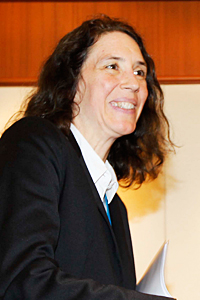The killings, detentions and disappearances of human rights defenders, and tightening of restrictions on civil society across Southeast Asia since the start of 2014, underline the United Nations' concerns about the shrinking space for civil society.
Across the region, draconian laws such as those on sedition, lèse majesté and internal security have been used against civil society, targeting everyone from humanitarian workers and journalists to bloggers and local community activists.
In a message to mark International Day of Democracy today, the UN has expressed concerns about the diminishing, even disappearing, freedom for civil society to operate.
Participation is a right protected in international law. Participation and freedom of expression, assembly and association are interdependent and they mutually reinforce one other. Simply put, participation promotes good governance and democracy.
It is noticeable in some Southeast Asian countries, despite commitments to being people-centred, participation is not the norm. Civil society, which acts as a catalyst for social progress and economic development, is being given short shrift.
Over the past 18 months, the South-East Asia regional office of the OHCHR, charged with promoting and protecting human rights, has identified new layers of restrictions being put in place by governments to limit the ability of non-governmental organisations (NGOs) to work, or to receive funding, or both. There have been attacks on journalists along with other forms of intimidation, harassment and prosecution of the media. Defamation laws to curb criticism of public figures, overly restrictive media laws, anti-terrorism and anti-extremism laws, expanded surveillance, and the blocking of websites and social media have been used in some cases to restrict the legitimate exercise of the right to freedom of expression.
Even in the Philippines, known for its vibrant civil society and democratic culture, the killing of journalists and human rights defenders is common.
Since last year's coup in Thailand, more than 1,200 cases of arbitrary arrest and detention have been documented. OHCHR has voiced its concern at the disproportionate prison terms handed down in Thailand over the past few months in lèse-majesté cases.
OHCHR has also conveyed its concerns about the shrinking democratic space in neighbouring Malaysia. In April 2015, the government further broadened the scope of offences under the 1948 Sedition Act and introduced harsher penalties. Since the start of 2014, the High Commissioner's Office has received reports of at least 81 people investigated or charged under the Sedition Act for expressing their views on issues of legitimate public interest.
Since 2011, Myanmar has made important progress towards the opening up of democratic space and in November most of the country's inhabitants will vote in the first openly-contested general election in 25 years.
However, since March 2015, there has been a growing trend of arrests, detentions and prosecutions in relation to the legitimate and peaceful exercise of freedoms of expression and peaceful assembly.
Moreover, the lengthy trial procedures that follow appear to be targeting leaders of civil society movements.
In Cambodia, where civil society organisations have long played an important role in society, the government has pushed through a new law, without debate, tightening restrictions on associations and non-governmental organisations. The law creates cumbersome new requirements for registration and reporting of associations and NGOs, and allows for denial of registration on grounds that far exceed what is permissible under international human rights law.
In Vietnam, we have witnessed an alarming pattern in the treatment of civil society, involving the intimidation and harassment of bloggers.
In Indonesia, civil society appears to be gaining traction. President Joko Widodo has noticeably taken positive steps on press freedom and freedom of religion. Yet, civil society space is not even in all parts of the country, and we see independent observers and community representatives in Papua coming under intense pressure.
OHCHR strongly believes that confident nations give their citizens a say and role in the development of their country. Civil society plays a critical role keeping governments accountable, and helps represent the diverse interests of the population, including its most vulnerable groups. On this day, let us recall that progress and civic participation go hand in hand.
Matilda Bogner is the the regional representative of OHCHR's South-East Asia office.
